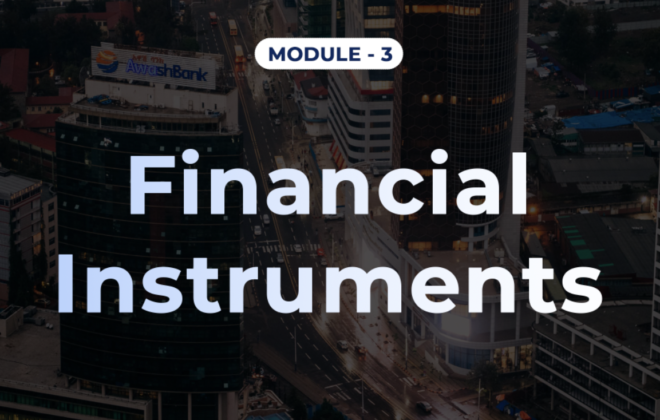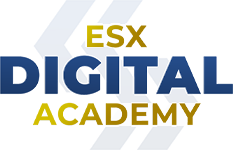Module 3 – Financial Instruments

About Course
Module Introduction
Welcome to the “Overview of Financial Instruments” module, where we explore the essential tools that power modern financial markets. Financial instruments encompass a broad array of assets that hold monetary value and are traded between parties, serving multiple purposes such as raising capital, managing risk, and facilitating investments. This module will guide you through the fundamental nature of financial instruments, highlighting their diverse characteristics, classifications, and roles within the economy. Through this exploration, learners will gain insights into the mechanisms of capital allocation, risk management, and market efficiency that financial instruments facilitate, providing a solid foundation for further study in finance.
In the introductory section, we will define financial instruments and categorize them into various types, including equity instruments like stocks and bonds, debt instruments, and derivatives such as options and swaps. Each type possesses distinct features, risk-return profiles, and applications, allowing investors to tailor their portfolios according to their individual goals and preferences. For instance, equity instruments offer ownership stakes in businesses with the potential for capital appreciation and dividends, while debt instruments provide fixed income through interest payments. Additionally, derivatives allow market participants to hedge against fluctuating prices or speculate on future market movements, showcasing the versatility of financial instruments in today’s global economy.
Understanding financial instruments is crucial not only for individual investors but also for institutions that drive the global economy. These instruments enhance market liquidity, assist in price discovery, and enable effective risk management across various investment horizons. By gaining a comprehensive understanding of how these instruments work, learners will be better equipped to navigate the complex landscape of financial markets and make informed investment decisions. Furthermore, as the financial landscape continues to evolve with technological advancements and shifts in global economic conditions, staying well-informed of these changes is essential for success in finance.
This module will also probe into emerging trends and innovations in financial instruments, such as the rise of digital assets, blockchain technology, and algorithmic trading. These developments are not only reshaping traditional financial paradigms but also creating new opportunities and challenges for investors and market participants. By examining these trends, you will gain valuable insights into how financial instruments are adapting to the needs of a rapidly changing market, preparing you for a dynamic career in finance. Let’s embark on this enlightening journey together!
Course Content
Module Introduction
-
Module Introduction
03:12
Chapter 1 – Introduction to Financial Instruments
Chapter 2 – Equity Securities
Chapter 3 – Debt Instruments
Chapter 4 – Derivative Instruments
Chapter 5 – Future Trends in Financial Instruments
Module Summary
Student Ratings & Reviews
Thank you!






